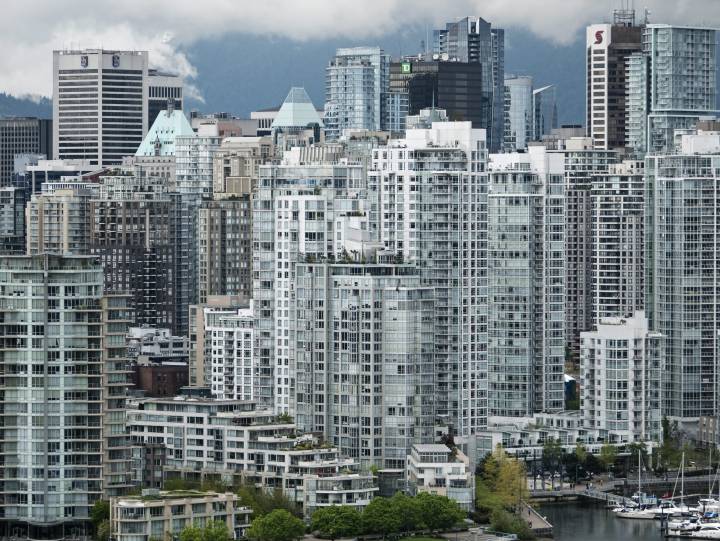One of the densest cities in North America has recorded relatively few Covid-19 cases.
There’s a popular theory going around–unfortunately being propagated by the Governor of New York–that somehow density is to blame for the spread of Covid-19. There’s little question that New York is the epicenter of the pandemic (pandemicenter?) and it is, famously, America’s densest city. But if density were the main factor, or even a consistent one, you would expect to find it driving the pandemic in other dense cities as well.
Blogger Aaron Carr–among others–have done a great job of graphically highlighting the simple fact that much denser cities around the world, particularly in Asia, have done a dramatically better job than New York in containing the virus. Tokyo, Taipei and Seoul, to name three, have far lower numbers of reported cases and deaths on a population-adjusted basis than does the New York Metro Area. But of course, its tempting to dismiss the relevance of these examples, because they are, after all, other countries.
But we can find an equally good example close at hand, right here in North America. Just across the 49th parallel, there’s a very dense metropolitan area that’s done as good a job as any US metro area in fighting the spread of the pandemic: Vancouver BC.
For purposes of this essay, we’ll compare Vancouver with its two nearest US neighbors: Seattle, which is slightly bigger and had an early and severe Covid-19 outbreak; and Portland which is slightly smaller, and has managed to record one of the lowest cumulative rates of reported cases per capita of any large US metro area (50th out of 53, at last count).
The three principal cities of Cascadia, Portland, Seattle and Vancouver have all been affected by the Corona Virus.

Metro Seattle had the first case recorded in the US on January 21, 2020; Vancouver had one of the earliest cases in Canada on January 26.
Metro Vancouver is the densest city in Canada, with a density of more than 5,000 residents per square kilometer. It’s the fifth densest large city in North America, and in the US, only San Francisco and New York have higher densities.. Two-thirds of its residents live in multi-family housing. In addition, Vancouver is a global gateway city with substantial tourist and business travel, close ties to Asia, and a large immigrant Chinese population. Metro Vancouver has more than a quarter million residents who were born in China or Hong Kong. A high fraction of its residents use the city’s excellent transit system. A recent city report shows that a majority of all trips were made by walking, cycling or transit.
So, if your pet Covid-19 theories revolve around density, lots of Chinese people, and riding buses and trains, Vancouver ought to be a hotbed of infection.
But it’s not. If anything, despite density, diversity and transit, Vancouver’s weathered the crisis extremely well.
Here we’ve tabulated data on the number of cases reported by the British Columbia Center for Disease Control (BCCDC). We’ve computed a rate of cases per 100,000 comparable to our estimates (based on US data compiled by the New York Times), for Portland, and Seattle. In each case, we’ve adjusted for population by calculating the cumulative number of reported cases per 100,000 population. Data for Portland and Seattle are for their respective US metropolitan areas; BC data is for the two provincial health authorities–Vancouver Coastal and Fraser–that serve the Vancouver Area.
Reported Covid-19 Cases per Capita, Selected Cities

Vancouver’s rate of reported cases is slightly lower than metro Portland’s (45 vs 54 cases per 100,000); Seattle’s rate is higher (owing largely to the effects of the large and early outbreak in March).
We’ve also computed the number of newly reported cases per 100,000 population in the past day (April 16 for Vancouver; April 17 for the US cities). Again, Vancouver has the lowest rate of reported cases of the three; and all these cities are well below the median values for large US metro areas (5 cases per 100,000). For reference, the New York metro area recorded more than 50 new cases per 100,000.
Vancouver is in the same region, and roughly the same size as Portland and Seattle. And it is far denser, and yet it has performed the best of the three in fighting the spread of the Corona virus. It should be pretty compelling evidence that density is not a determining factor of whether one is vulnerable to the pandemic or not.
Why did BC do so well?
It’s unlikely that it was differences in travel restrictions and social distancing policies. British Columbia’s response to the pandemic was very similar to that of neighboring Washington State. The province closed schools and bars on March 17, and extended its closure to dine-in restaurants on March 20. Seattle closed its bars and restaurants on March 16, after closing most schools on March 11.
When it comes to the pandemic, density is definitely not destiny. But that still leaves open a question of why BC did much better than Seattle and somewhat better than Portland. Of course, the Canadian health care system’s more comprehensive and community focused model may be part of the reason.
This post has been revised to correct typographical errors.
